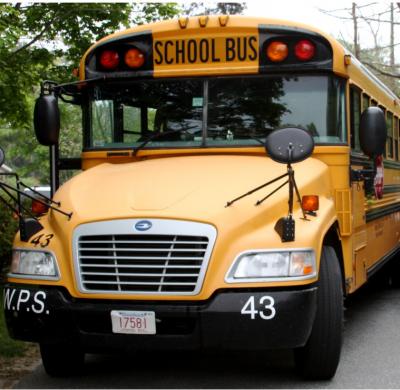Teachers praised at School Committee meeting
Wareham High School teachers are being praised for their effort raising student MCAS tests scores.
Principal Scott Palladino told the School Committee on Nov. 6 that the teachers contributed to lowering class sizes from “25 or 26” students to “hovering around 20.”
This was a challenge to teachers, but that challenge paid off.
“That made a big difference- the teachers doing what was right for our students,” Palladino explained. "Let's be frank, there wasn’t any money in the budget to create a core class. We had to be creative. Teachers stepped up.”
Increasing the number of classes taught by each teacher helped reduce the size of classes according to Palladino.
"We asked all our teachers to take on one extra class," Palladino explained.
MCAS tests results were a benefactor of this. The school had gains in mathematics, where more students scored advanced than proficient.
“I never thought I would see more advanced than proficient- talk about a great trend for the numbers,” committee member Geoffrey Swett said.
Numbers were also impressive for science and English and language arts.
Palladino’s goal is to increase MCAS tests advanced and proficient scores by an average of 5% in math, English and language arts, and science.
The MCAS tests results are contrasted by the school’s Advancement Placement test scores, where the school ranks below the state average in United States history, statistics, economics, environmental science, English literature and composition, English language composition, calculus, and biology. Yet, the school did improve in most of these subjects from 2012.
“This doesn’t make sense,” Swett said. “We have CPIs that are above the state average. These are some of our best kids, and we’re a full point behind on English language composition.”
CPI, the Composite Performance Index, measures how well a group of students preform on the MCAS tests.
Palladino explained two main factors impact the low Advanced Placement scores.
“Part of what happens is it’s time on learning,” Palladino elaborated. “A lot of schools will double up the period or go every day instead of every other day, so we’re a little behind on time on learning.”
Perhaps the biggest factor in the high school’s low Advanced Placement test scores, though, is the fact that the school has a policy requiring every student in these courses to take the test. This is not a state requirement.
“Some want to take the exam more than others,” Palladino explained.
Another issue is declining enrollment in these classes. Only four of 12 courses Advanced Placement courses had attendance increases. However, Palladino remained optimistic.
“You’ll be very happy with the numbers in 2014,” Palladino said, referencing an increase in student enrollment in Advanced Placement courses. Presently, the school has exceeded its goal of a 30 percent increase in Advance Placement course enrollment according to Palladino.
“The overwhelming message I want to send is: anyone thinking about going somewhere other than Wareham High School should think again,” Swett said.














